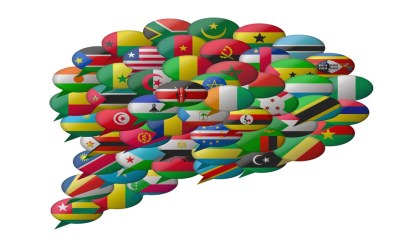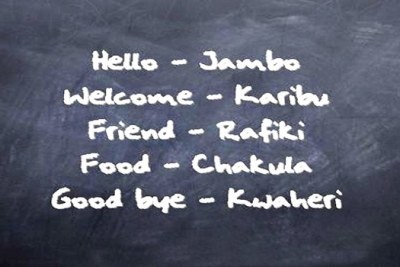-
East Africa: Kiswahili - How a Standard Version of the East African Language Was Formed - and Spread Across the World
The Conversation Africa, 6 July 2023
Kiswahili originated in east Africa, spreading around the continent and the globe. It's been adopted as a working language at the African Union and there's a push for it to become… Read more »
-
Malawi: Malawi's President Orders Swahili to Be Taught in Schools
VOA, 7 July 2023
Malawi President Lazarus Chakwera has ordered the country's education authorities to immediately start introducing the Swahili language into the country's school curriculum for… Read more »
-
East Africa: Kiswahili At the Center of Digital Advancement, Artificial Intelligence
Africa Renewal, 7 July 2023
Internet-based platforms that support Kiswahili include, Google, Mozilla, Airbnb, Uber, WhatsApp, Spotify, among others. ChatGPT also provides responses in Kiswahili Read more »
-
Africa: Colombia to Offer Swahili Lessons in Schools in Nod to African Heritage
RFI, 4 June 2023
Swahili will be taught in Colombian schools as a foreign language option, Colombia's vice president has announced. She says the move will help Afro-Colombians reconnect with their… Read more »
-
Africa: Africa's Linguistic Diversity Goes Largely Unnoticed in Research On Multilingualism
The Conversation Africa, 5 July 2023
Language is a uniquely human skill. That's why studying how people learn and use language is crucial to understanding what it means to be human. Given that most people in the world… Read more »
-
Africa: Kiswahili Becomes AU's Working Language
Daily News, 7 February 2022
African Union (AU) Heads of State and Government have approved Kiswahili as one of the bloc's official working languages following a request from Vice-President Dr. Phillip Mpango. Read more »
-
East Africa: Kiswahili Is a Language That Speaks to Both Past and Present
Africa Renewal, 7 July 2022
With over 200 million speakers, it is one of the most widely used African languages, encompassing more than a dozen main dialects. Read more »
How Kiswahili Language Became a Lingua Franca of East Africa
Kiswahili originated in East Africa, spreading around the continent and the globe. It's been adopted as a working language at the African Union and there's a push for it to become Africa's lingua franca or common language, reports Morgan J. Robinson for The Conversation Africa.
According to Unesco, which in 2021 proclaimed July 7 as World Kiswahili Language Day, it's spoken by 200 million people. Kiswahili's role as a prominent symbolic and practical language in Africa is the result of multiple factors. These range from political and economic to cultural and historical. Already by the 1800s Kiswahili was being used all along the caravan trade network that crisscrossed east-central Africa. In the centuries before this, the language had been used to formulate legal, philosophical and poetic contributions that influenced the entire Indian Ocean world.
"Many, including literary heavyweights Ngũgĩ wa Thiong'o from Kenya and Wole Soyinka from Nigeria, have advocated for the embracing of Kiswahili as a pan-African language of communication. But there's legitimate concern that the expanded use of Kiswahili in official and unofficial realms could endanger the linguistic diversity of east Africa," said Robinson.
InFocus
-
The African Union heads of states and government have approved Kiswahili as one of the bloc's official working languages following a request from Tanzania's Vice President Phillip ... Read more »
-
The region's Legislative Assembly has passed a resolution to make Kiswahili an official language alongside English. Read more »
-
An innovation by four university students that translates the local dialect into English or Kiswahili to make it easier for doctors to diagnose patients' symptoms remotely has ... Read more »








